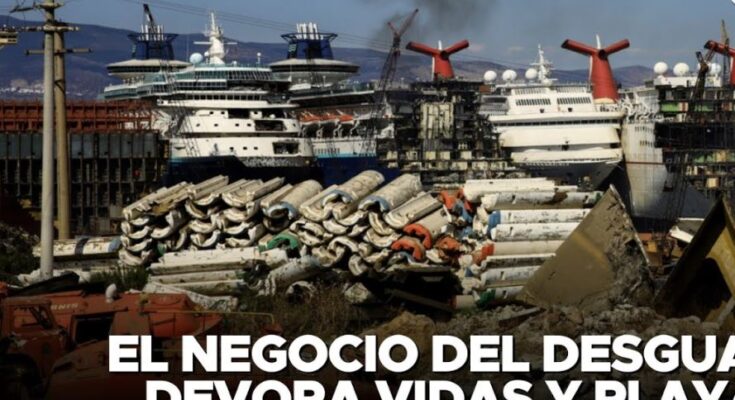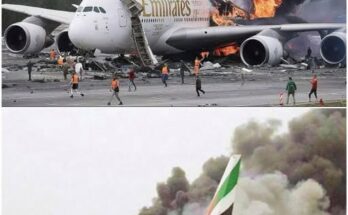### Summary
The video transcript provides a detailed and somber overview of the shipbreaking industry in Bangladesh, focusing on the infamous ship graveyard at Chattogram. This site is the final destination for thousands of decommissioned ships from around the world, primarily because of the region’s low labor costs and lax regulatory oversight. While economically significant, this industry exacts a severe toll on workers’ health and safety and causes profound environmental damage. The transcript highlights the extreme risks faced daily by thousands of laborers who dismantle massive vessels laden with toxic substances such as asbestos and heavy metals, often without proper protective equipment or safety measures. Despite the introduction of the Hong Kong International Convention on Ship Recycling in 2023, which aims to enforce minimum environmental and safety standards, enforcement remains uncertain, and many fear it may be mere window dressing. The tragic human cost is exemplified through personal stories of injured workers like Nissan Josin and bereaved families such as Rec’s, who lost her husband in a workplace explosion. Meanwhile, NGOs warn about ongoing pollution, including illegal waste dumping into the sea. The video underscores the urgent need for genuine regulatory compliance to protect vulnerable workers and the environment from this hazardous industry’s devastating impacts.
### Highlights
– ⚓ Bangladesh’s Chattogram beach is the world’s largest shipbreaking yard, dismantling thousands of ships.
– 💀 At least 470 workers have died and over 500 seriously injured in South Asian shipyards since 2009.
– 🔥 Workers face extreme hazards, including toxic materials and dangerous heights, often without safety gear.
– 📜 The Hong Kong Ship Recycling Convention promises improved safety and environmental standards.
– 🌊 Despite regulations, enforcement remains weak, risking ongoing human and ecological harm.
– 💔 Personal stories highlight the human cost, with families struggling after fatal accidents.
– 🚢 European ships continue to be dismantled in South Asia, perpetuating pollution and poverty cycles.
### Key Insights
– ⚠️ **High Fatality and Injury Rates Reflect Systemic Safety Failures**: The staggering death toll and injuries in shipbreaking yards in Bangladesh, India, and Pakistan reveal chronic neglect of worker safety. Many accidents are routine rather than exceptional, indicating systemic issues rather than isolated incidents. The absence of official registries, as in Chattogram, likely means these figures underestimate the true human cost. This underlines the urgent need for robust data collection and accountability mechanisms to drive reforms.
– 🌍 **Economic Factors Drive the Industry Despite High Social Costs**: Bangladesh’s shipbreaking industry flourishes due to its low labor costs and weak regulatory enforcement, attracting a third of the world’s scrapped ships. This economic incentive, however, comes at the expense of workers’ health, safety, and the environment. The industry supports thousands of livelihoods but perpetuates poverty through unsafe conditions and lack of social protections, highlighting the tension between economic development and ethical labor standards.
– 🌡️ **Toxic Exposure Poses Long-Term Health Risks**: Workers dismantle ships containing hazardous substances such as asbestos, heavy metals, and residual oil without adequate protection. This results in both immediate injuries and long-term health consequences, including respiratory diseases, cancers, and chronic poisoning. The environmental contamination compounds these risks, threatening local communities through polluted air, soil, and water. Addressing these hazards requires stringent enforcement of international safety protocols and investment in protective infrastructure.
– 📜 **The Hong Kong Convention Is a Positive Step but Faces Implementation Challenges**: The Hong Kong International Convention for the Safe and Environmentally Sound Recycling of Ships, effective from this year, sets minimum safety and environmental standards. However, its success depends on local authorities’ commitment and capacity to enforce the rules, which is currently doubtful in Bangladesh. There is a risk that compliance will be superficial, failing to protect workers or reduce pollution, unless supported by international pressure and local reforms.
– 💔 **Human Stories Put a Face to Industrial Tragedy**: Personal accounts, such as Nissan Josin’s survival from a 10-meter fall with debilitating injuries and Rec’s struggle after losing her husband in an explosion, humanize the statistics and underscore the profound social impacts of the industry. These stories reflect the precarious existence of workers who face daily hazards without adequate compensation or social safety nets, emphasizing the need for stronger labor rights and support systems.
– 🔄 **Global Supply Chains Contribute to the Problem**: European and other developed countries continue to send their decommissioned ships to South Asian yards due to cheaper dismantling costs, transferring environmental and social costs to poorer nations. This practice reflects the global inequality embedded in industrial waste management and highlights the responsibility of ship-owning countries to ensure ethical recycling practices rather than outsourcing harm.
– 🌱 **Environmental Damage Threatens Ecosystems and Future Livelihoods**: Illegal dumping of toxic waste into the sea, contamination with asbestos and heavy metals, and the physical destruction of coastal habitats pose serious threats to marine ecosystems and local communities dependent on fishing. This environmental degradation perpetuates cycles of poverty and illness, making sustainable solutions essential not just for workers but for regional ecological health and economic stability.
Collectively, these insights stress the urgent need for comprehensive reforms that balance economic interests with human dignity and environmental stewardship, ensuring that the shipbreaking industry no longer operates at the expense of the most vulnerable.



